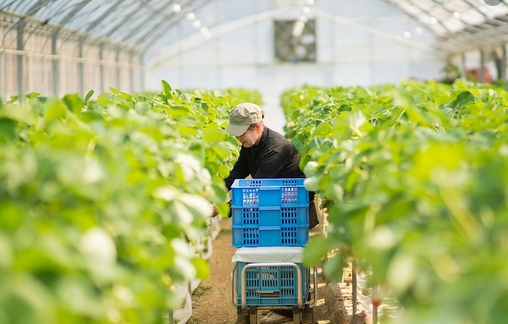
In the agricultural market, since 2004, Ballagro is a 100% national company that aims to create more sustainable agriculture, and develop biological control products that will help solve the major problems present in the daily lives of producers.

Created to become a leader in biological control and plant nutrition through research, technology and effective products, the company has two production units that work daily to enhance its reputation and values, which are:
- To act with seriousness, humanism, solidarity and cooperation at all times.
- To respect the environment and people above all.
- To search for continuous improvement, innovate and invest in people, products and services.
- Achieve moral integrity, honesty, respect and appreciation for people.
Below the Commercial Director of Ballagro Agro Tecnologia talks about the biological pesticides market.
1. In the past two years, the market for biological pesticides has grown at an accelerated rate in terms of revenue and product registrations. In this sense, what are the prospects for growth in the supply of biological pesticides in Brazil and the rest of the world in the coming years?
In 2019, the Brazilian biodefensives market reached a value of 675 million reais, growing between 10% and 15%, above the estimated international growth average.
The global average value of new registered biological products per year increased from 3% to 11% in the past decade. So far in 2020 in Brazil, around 19 new biological products were registered by MAPA.
The biological control market continues to grow at an accelerated pace worldwide, and the market is estimated to grow by 10% to 15% in Brazil over the coming years.
2. According to studies, Brazil is not highly dependent on imported biological pesticides, having a reasonable level of domestic production that are different from chemical pesticides that are mainly imported. How will the current national market scenario, shaken by COVID-19, impact the availability and cost of these products in Brazil?
As we are part of a fundamental link in the supply of inputs for agricultural production, Ballagro's industrial area has not stopped its activities. We are continuing our normal production of biological pesticides, while complying with all safety standards established by official health agencies during this pandemic.
Much of our raw materials comes from Brazil, and to date, we have not experienced major changes to production costs, so we have no plan to increase the cost of organic products available to farmers.
3. In Brazil, the adoption of sustainable agriculture techniques is increasing more and more among producers, and this has had a direct impact on biological pesticides. Based on this, what increase do you expect in the future demand for biological pesticides by Brazilian producers?
Integrated pest and disease management and greater care for soil conservation are increasingly more common practices in our agriculture. It is estimated that 20 million hectares already use some biological control products in Brazil, with soybeans, sugarcane, coffee, vegetables and fruits being the main crops. The industries of the sector have been developing practices to bring farmers a greater amount of technical information, new biological products, new formulations, and innovations in application, therefore, helping to increase demand for this type of input.
4. For the farmer, what are the advantages and disadvantages of using biological control? Currently, we can see the joint management of biological and chemical products. Could this be a trend? What do you think of this practice?
The farmer has many advantages when using biological pesticides! They are inputs that go through a validation process with competent bodies, such as IBAMA, ANVISA and MAPA, and they have proven agronomically efficiency, do not leave residue in food, and are safer for applicators and the environment. The difficulties we can mention are the lack of information and low product offer in more remote regions.
The joint use of chemicals and biologicals is part of the integrated management being practiced currently in Brazil. There is no single solution when it comes to the management of wages and diseases in agriculture, so this is a very important practice that will contribute to more efficient and sustainable control.
5. As a company that has a microbiological control portfolio, does Ballagro intend to apply for new registrations for products in other classes, such as biological control? What are the investments for the coming few years and what products will be launched soon?
Ballagro constantly seeks biological innovation, and since our establishment, we have always invested considerably in research and development. We were the first company to register a microbiological nematicide and also the first to register the fungus, Beauveria bassiana, to control whitefly in Brazil.
Our focus is to bring solutions that will add to the agricultural production system, so in 2020, we will launch two innovative products based on mixtures of microorganisms, which will deliver ease and greater efficiency to farmers.
In our pipeline, we have launched around 15 projects to develop new products that will be available in the coming years.
6. We know that the registration of chemical pesticides is very complex and time-consuming in Brazil. Do biological products go through this same process or have a faster release period? What is your opinion about this process for biologicals?
Ballagro has considerable experience in the registration of biological products, and over the past few years, competent bodies have improved and streamlined this process. As a result, we have seen a large volume of biological pesticide records being made available to the market.
With the growth of the biologicals market, we are all evolving in several areas, ranging from research to regulation, so companies (via CropLife), in cooperation with the government, are constantly working on improving legislation.